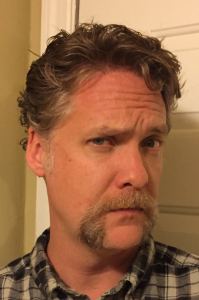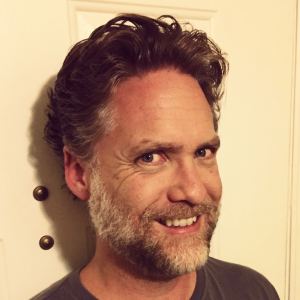This is not a review. It is a burst of reactions and first impressions. It is rife with spoilers.
It has been 32 years since we’ve had a good Star Wars movie – or 35 years, depending on your level of Ewok-induced disillusionment. After the prequels, George Lucas led us to believe there would be no more Star Wars movies, and even had the gall to suggest that he never even planned to make Episodes VII-IX, which, as anyone who was twelve in 1983 can tell you, is a bald-faced lie. Not that we would have necessarily wanted Lucas to make them, of course, after seeing I-III.
Therefore, finally getting an Episode VII that’s actually good is a boon unlooked-for, a surprise gift. It is not perfect, but it is perfectly delightful.
Our new trio – Rey, Finn, and Poe – are likable, engaging, and superbly acted. The movie is funny in the same quippish way as the best of the original trilogy, but funnier. The directing is crisp, the visuals (it goes without saying) are stunning. Kylo Ren is a nuanced villain, and he can stop a blaster bolt in mid-air. Come ON! But really I don’t much feeling like tabulating the pros and cons; it did not suck, therefore I am a Star Wars fan again, and it is in that capacity that I will consider some common critiques of the new movie.
Common Critique #1: “Rey is a total Mary Sue. She has all the skillz and no flaws. Give me a break.”
Response: True, she is Force-strong, scrappy, and multi-lingual, with a knack for piloting, engineering, and hand-to-hand combat. Just like, hmm, Anakin, who freakin’ invented C–3PO when he was five or something. I have faith we will see Rey’s flaws in the coming movies, but in the meantime I really can’t hear you over the fact that my twelve-year-old daughter thinks it’s awesome that the new main character in a Star Wars movie kicks ass and is female.
C.C. #2: “This is basically a re-make of the original Star Wars. SO many similarities.”
Yes. Largely true, and the worst thing about the movie. At numerous points the obvious parallels took me out of the moment. But let’s be clear: the borrowing is rampant from not just A New Hope, but from Empire and Return as well. From IV we have your basic we-need-to-blow-up-the-Death-Star climax, as well as the kid-from-a-desert-planet joining the Rebelli-oops-I-mean-Resistance. But the father-son dynamic comes from V & VI, the catwalk confrontation between Kylo and Han is straight out of V, as is the hologram-conversation-with-a-supreme-leader. The assault on Starkiller base, with its ground assault component to neutralize the shields, and having to fly into the structure to blow up stuff there, is actually more reminiscent of VI’s Death Star battle than IV’s.
Point being, I’m not actually worried that this is going to continue. My sense is that this movie was the big nostalgia-fest, and going forward, they’re going to tell their own story. If I’m wrong, and the parallels continue (for example, with Luke training Rey in ways that blatantly mirror Yoda training Luke), that will suck. The level of imitation/homage/nostalgia in Force Awakens is clearly intentional, and I don’t get why Abrams made that choice, but I think – I hope – it’s done.
C.C. #3: “So the First Order is the Empire but not really and the Resistance is the Rebellion? And then what the hell is the Republic? And are they dead now? I’m so confused …”
This is actually the one that has me the most worried. The reason is that the answer to some of the above is apparently to be found in Aftermath, the Star Wars novel that takes place between Return of the Jedi and Force Awakens. I haven’t read it, but I’ve read enough about it to know that the Rebel Alliance founded the New Republic, which beat the crap out of the Empire in a big battle at Jakku (hence all the wreckage there). Then the Republic signed a peace treaty with what was left of the Empire, drew borders, yada yada. The First Order is what’s left of the Empire, and since they’re technically at peace with the Republic, the Senate doesn’t want to officially support an insurgency against the First Order. So Leia goes and does it on her own.
All very good to know! All totally absent from the film.
The Force Awakens is keenly attuned to the personal struggles of its protagonists and antagonist. It doesn’t seem to care much for galacto-politics. By far the most consequential event of the movie is the destruction of the Hosnian system by the Starkiller base, the implicatons of which are not even dealt with. Was the new Senate destroyed? How much of the Republic Fleet was lost? Is the First Order now in a position to retake territory from the Republic, or does the loss of Starkiller also leave it stretched thin?
My hunch is that all that stuff will be answered, as will many other things, not in the movies, but in the associated novels, comic books, and video games. Look, I love that the story has jumped forward so far, leaving so many questions unanswered. It actually creates a situation similar to experience of the original trilogy, when we heard stuff about the “Clone Wars” but could only guess what it was about. And, to be fair, now that I think about it, this was all true back then – IV-VI are similarly light on the world-building.
But I don’t want to read all that extra stuff. I’ll watch garbage if it’s the right kind of garbage, but I can’t stomach a paragraph of bad or even mediocre prose.
Let’s allow that there’s only so much they can put in a two-and-a-half-hour movie, so obviously some details of the universe will have to be found elsewhere. I will happily grant, to use one example, that Maz Kanata remain an enigmatic character in the movies, with a wealth of background detail ready to be uncovered elsewhere if you’re sufficiently inclined to look. Same for Lor San Tekka, the old guy at the very beginning of VIII. But here’s where I draw the line: the fall of Luke’s Jedi Academy. If that’s addressed in the subsequent movies, via flashback or whatever, great. If, in order to get the whole story on that event, we have to read some tie-in novel, I will be very very cross.
Moving on.
Rey’s background. I really need to see the movie again to verify what some people have suggested is the case: that in her vision-thingee when she touches Luke’s lightsaber, at that moment when young Rey is being left behind on Jakku, she’s wearing something that looks like Padawan robes. That would strongly suggest a connection to Luke’s Academy, which would also make her incredibly rapid acquisition of Force powers a little more understandable.
In any case, I hope she’s not somehow Kylo’s twin, because that would be too obvious and if that was true Leia should have been able to sense it. I am rooting for granddaughter-of-Kenobi over daughter-of-Luke, though either one would require quite a bit of backstory that might get stashed in tie-in novels (ugh). I think it’s inevitable (and appropriate) that either Rey or Finn turn out to have familial connections to the older generation, but I hope that it’s not true of both of them.
Supreme Leader Snoke should turn out to be Darth Plagueis. Or someone totally new. If he turns out to be the Grand Inquisitor from the Star Wars: Rebels animated series, I will be very very cross. No, I have not seen that show. Yes, I read about that theory on the Internet.
Can we take a moment to dwell on how very tragic Han’s death was? The great smooth talker finally meets the situation he can’t talk his way out of. And it’s not like he got to die heroically either, if-he-hadn’t-done-that-we’d-all-have-been-doomed, nope. Either he thought he could get through to his son, and he was wrong, or he knew he couldn’t get through to his son, and was sufficiently depressed about it to choose death. Either way, dark. And Leia! She basically told Han to do that talking when he himself was skeptical! And then Luke, no doubt feeling responsible for Ben Solo breaking bad in the first place! These poor original trilogy folks have it rough. I hope they catch a break.
Oh, and: that expression on Luke’s face when he turns around! The beard, the craggy skin! All the long years, the hope of a new tomorrow after defeating the Emperor and redeeming his father, swallowed by failure and disillusionment – that’s all there, plus his own self-doubt, maybe also a tinge of new hope at this person who’s found him. A perfect expression, and this from a performer who objectively could not act his way out of a paper bag thirty years ago.
I’ll have a better handle on this movie when I’ve seen it a second time without all my nostalgia buttons being so deftly pushed. And a better handle yet when Episode VIII comes out in a couple years and we see where they go from here. But in the meantime: the lightsaber wiggles in the snow, then lurches forward, and Kylo Ren thinks that he’s force-grabbing it but it whooshes PAST HIS FACE and Rey catches it. I’ll forgive a whole lot for more moments like that.






